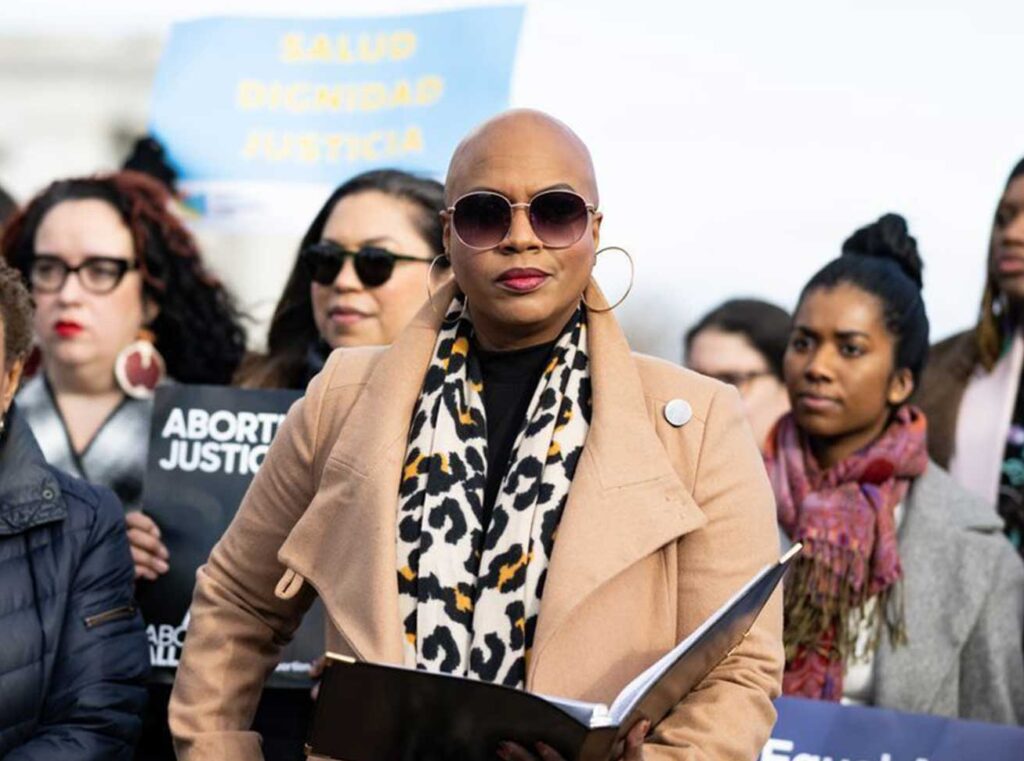Pressley follows up on Black Lives Matter pledges
Asks five banks for audits of promised $32B

After the murder of George Floyd sparked massive Black Lives Matter demonstrations, the country’s largest banks announced big financial commitments to help address racial inequality.
Congresswoman Ayanna Pressley wants to know how much money has been spent so far and where it has gone. The member of the House Financial Services Committee sent letters Aug. 17 to the chief executives of five banks, including Bank of America, requesting a “financial audit report” in two months of the more than $32 billion they collectively committed.
“We just need that transparency, accountability,” Pressley said in a telephone interview.
In the interview and her almost identical letters, she cited the history of banks’ role in redlining, charging Black customers higher interest rates on mortgages, denying loans to Black entrepreneurs and siting fewer branches in Black neighborhoods.
“They created and exacerbated the wealth gap,” Pressley told the Banner.
In her letter to Brian T. Moynihan, CEO of Bank of America, which dominates the Boston market, she noted the bank in June 2020 pledged $1 billion. Its news release said the primary focus over four years would be health, jobs, affordable housing and small business to “help local communities address economic and racial inequality accelerated by a global pandemic.”
In March 2021, the bank upped its commitment to $1.25 billion over five years to, in its words, “advance racial equality and economic opportunity.” The additional funds were to be targeted to “racial justice, advocacy and equality for people and communities of color, including those of Asian descent,” according the second news release issued then.
Reacting to Pressley’s recent letter, Bank of America has indicated it was already planning to issue a report but did not commit to her deadline of delivering it by Oct. 23.
“We committed earlier this year to an assessment of our programs and look forward to sharing that when it’s complete,” the bank said in a one-sentence statement.
In response, Pressley said of her request: “I fully expect every bank will respond if they want to be on the right side of history.”
The other banks receiving letters have less of a presence in the Boston area or none at all: JPMorgan Chase, U.S. Bank, Wells Fargo and Citi.
Altogether, the five banks pledged more than $32 billion amid the protests provoked by Floyd’s death under the knee of a white police officer in Minneapolis in May 2020. JPMorgan Chase by far committed the most, $30 billion, which includes loans, investments and contracts. Citi pledged $1 billion, Wells Fargo $450 million and US Bank $116 million.
“I think it is a perfectly reasonable thing to do, to follow up on the commitments made in the wake of the racial awakening the country went through,” said Nicole Obi, president and CEO of the Black Economic Council of Massachusetts, referring to Pressley’s letters.
Obi noted other companies besides banks publicly made financial commitments inspired by the Black Lives Matters protests.
“I think they should be held accountable for what they’ve done,” she said, “in as public a way” as their announced commitments.
“We don’t need equity theater,” Obi added.
In April, Creative Investment Research, based in Washington, D.C., estimated that more than 300 companies and foundations have made $72 billion in “Black Lives Matters pledges” and allocated $26 billion of that amount.
The research organization has asked the federal Securities and Exchange Commission to require companies that made such pledges to “provide transparent, comparable and decision-relevant data” regarding their fulfillment.
Another, earlier estimate set the overall amount committed to much higher. Two years ago, the McKinsey Institute for Black Economic Mobility put the figure that companies and foundations had pledged at a total of $200 billion.
In a narrower analysis of pledges from the country’s top 50 companies, the Washington Post found that little of the money had been allocated by May 2021, a year after Floyd’s murder.
The $32 billion that the five banks pledged and the overall estimates of $72 billion or $200 billion represents large sums to address inequality. But they pale beside the $12 trillion in reparations that Duke University economist William Darity has calculated the country owes to make up for slavery and equalize the wealth of Black and white households.
Pressley’s two-month deadline for banks to report, she indicated, was set to give the five banks enough time to prepare their financial audits.
“We’re looking for some pretty detailed information,” she said. “I’m looking for the receipts.”
Pressley, a member of the House committee that oversees banks, called her congressional district “one of the most underbanked districts in the country.” She said 10% of Boston residents are “unbanked” and another 20% are “underbanked,” meaning they have limited access to branches and their financial services. Various banks have permanently closed 39 branches in Boston, with more shuttered in Cambridge, Milton and Randolph, other municipalities she represents.
Pressley warned submission of the requested reports would not end her push for “restorative justice” from banks and her pressure on them to go beyond “press releases and statements of allyship.”
“The work must continue far beyond then,” she said.







